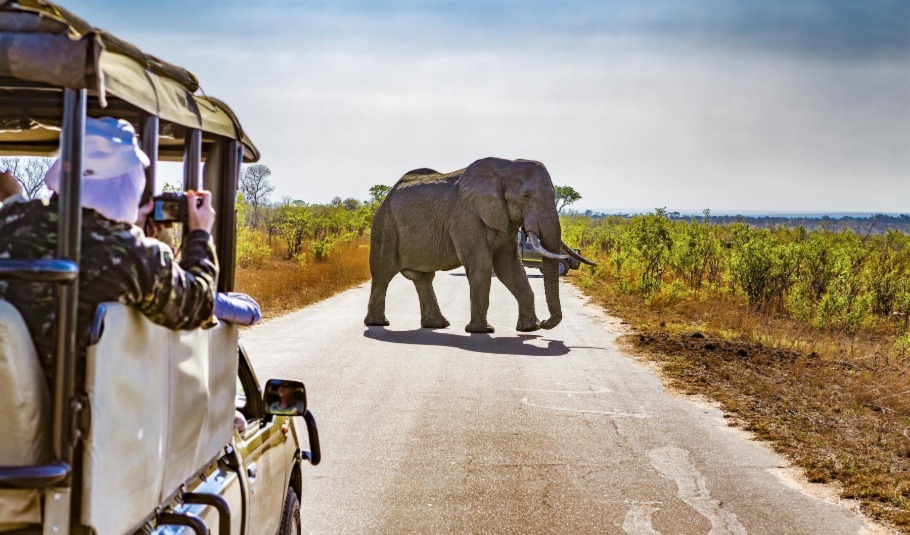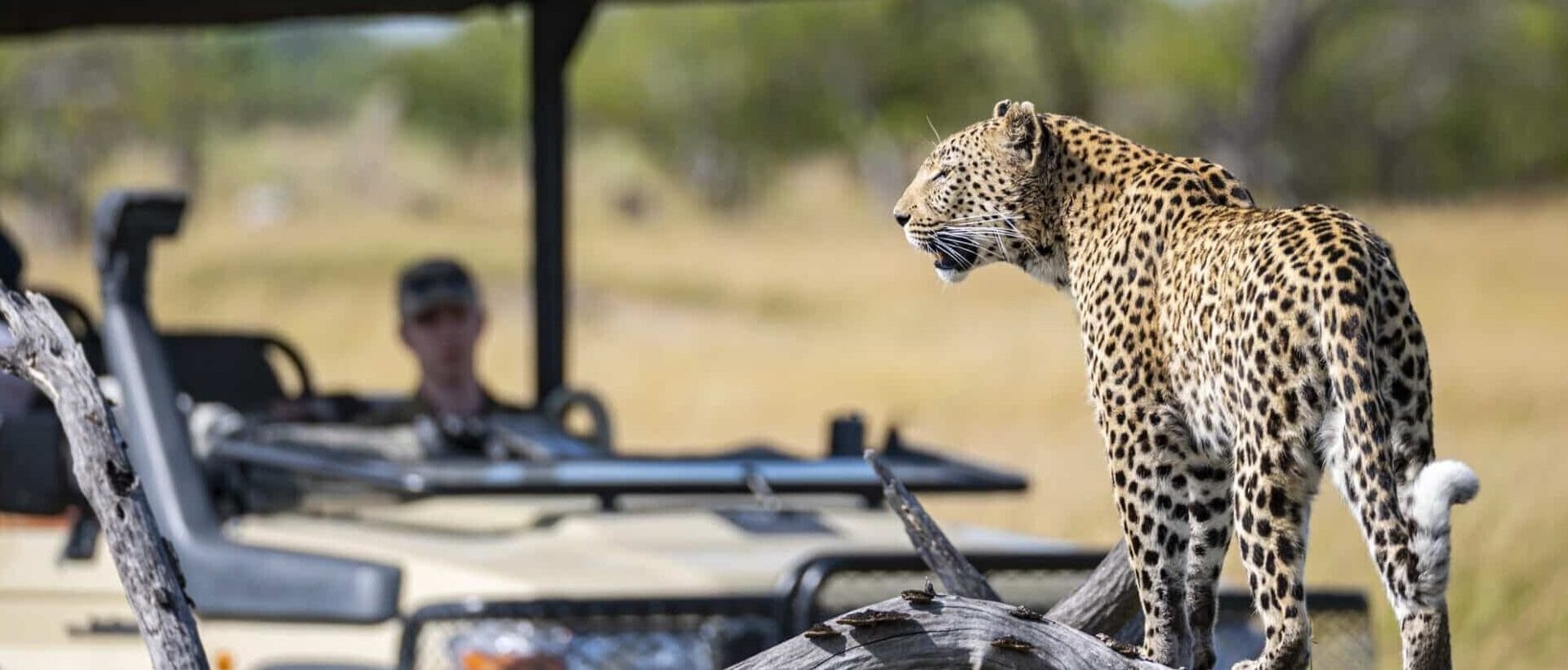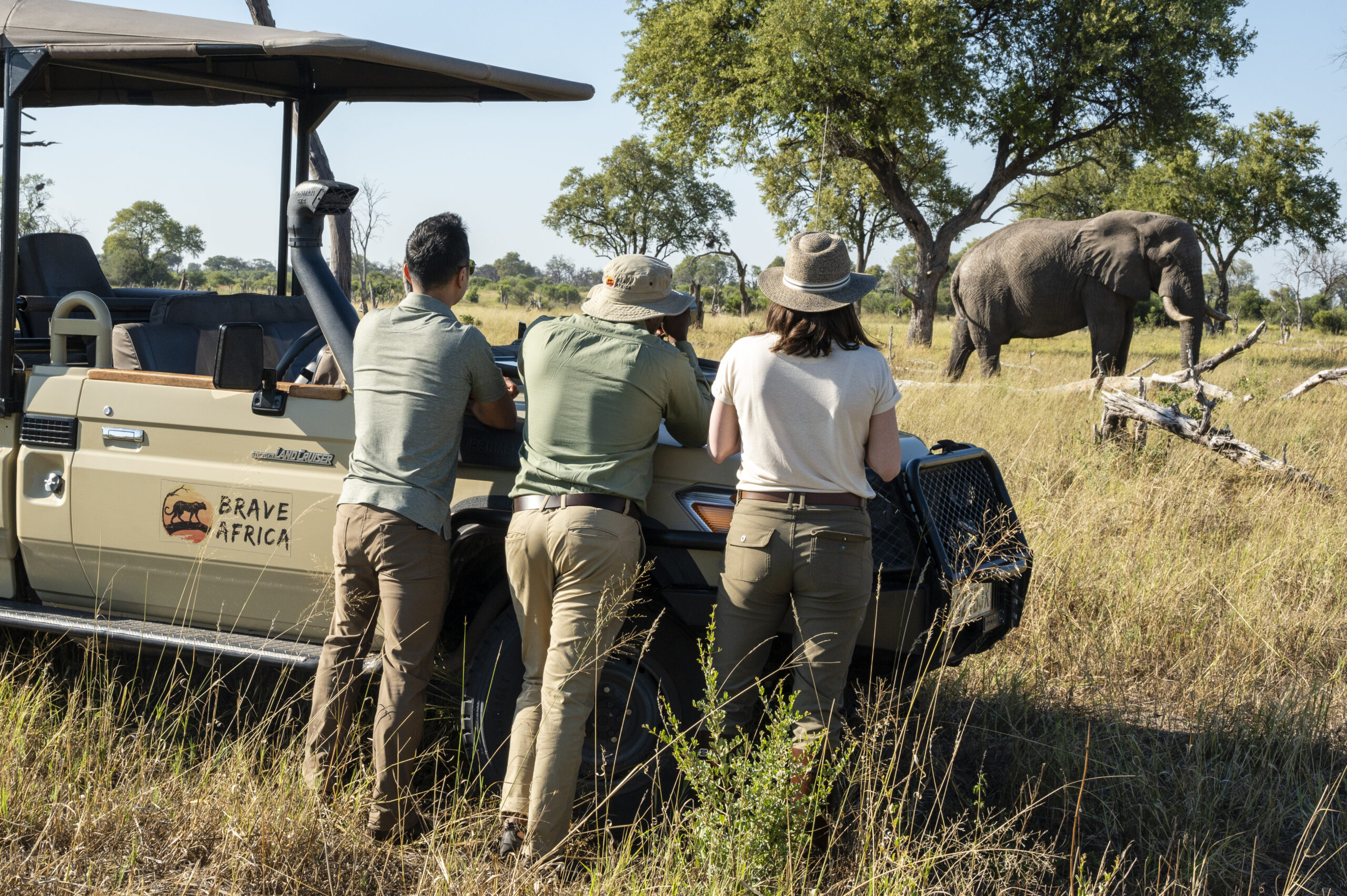Botswana Safari Tours from the UK: A Wildlife Experience Like No Other

Overview of Botswana Safari Tours from the UK
Introduction to Botswana safaris
Botswana is renowned for its incredible landscapes and rich biodiversity, making it a top choice for safari tours from the UK. Its unique ecosystems, including the vast Kalahari Desert and the lush Okavango Delta, create an exhilarating backdrop for wildlife enthusiasts. Botswana is not just about observing wildlife; it’s about immersing oneself in the rhythms of nature, experiencing the thrill of a game drive, or watching the sun set over the savannah.
Visitors can expect highly professional guides who share their extensive knowledge of the fauna and flora. The luxury safari experience offered here often includes comfortable accommodations, tantalising local cuisine, and thrilling activities that keep adventurers entertained.
Popular destinations and attractions in Botswana
When planning a Botswana safari, several must-visit destinations should be on your itinerary:
- Okavango Delta: A UNESCO World Heritage Site and one of the world's largest inland deltas, famous for its pristine wilderness and diverse wildlife.
- Chobe National Park: Renowned for having one of the largest concentrations of elephants in Africa and stunning riverine scenery along the Chobe River.
- Moremi Game Reserve: A combination of wetlands and dry land offering some of the best wildlife viewing opportunities in the country.
- Makgadikgadi Pan: One of the largest salt flats in the world, it presents a surreal landscape alongside game viewing and cultural interactions with local communities.
Exploring these attractions offers travellers unforgettable experiences with Botswana’s wildlife and landscapes.

Planning Your Botswana Safari Trip
Choosing the right safari package
Selecting the ideal safari package is vital for a fulfilling experience in Botswana. There are various options available, ranging from luxury lodges to mobile tented safaris. Each comes with its own set of advantages, and the right choice depends on individual preferences and budget. Consider the following:
- Type of accommodation: Choose between comfortable lodges and camps, depending on the level of comfort desired.
- Duration of safari: Packages can range from short, three-day experiences to comprehensive two-week adventures.
- Focus of the safari: Opt for a wildlife-focused package, a photographic safari, or a cultural experience including interactions with local tribes.
Best time to visit Botswana for a safari
The best time to visit Botswana often depends on the wildlife you wish to see. Generally, the dry season from May to October is ideal for spotting animals, as water sources dwindle, leading herds to congregate around remaining waterholes. Consider the following:
- Dry season (May to October): Excellent for wildlife viewing, specifically in the Okavango Delta and Chobe National Park.
- Green season (November to April): Ideal for birdwatching and witnessing the landscape in its lush glory, though wildlife is harder to spot due to dense vegetation.
Visa requirements and travel tips
Before venturing into Botswana, ensure you have the required travel documents. UK visitors typically do not need a visa for stays up to 90 days. However, always check current entry requirements.
Additional travel tips include:
- Ensure your passport is valid for at least six months beyond your planned departure.
- Get appropriate vaccinations and antimalarial medication, as advised by a healthcare professional.
- Pack suitable clothing for both warm days and cooler nights, and ensure to have sun protection and insect repellent on hand.
By carefully planning and preparing for your trip, you can fully immerse yourself in the remarkable beauty and wildlife of Botswana.

Wildlife Encounters in Botswana
Big Five and other wildlife species in Botswana
Botswana is a wildlife enthusiast's dream, renowned for its remarkable biodiversity. Home to the famed Big Five—lion, leopard, elephant, buffalo, and rhinoceros—Botswana offers countless opportunities to encounter these majestic animals in their natural habitats.
- Lion: Often spotted on game drives, these big cats are a highlight for many safari-goers. It's thrilling to observe their social structures within prides.
- Elephant: Botswana boasts the largest elephant population in the world, particularly within Chobe National Park, where herds can often be seen grazing by the river.
- Leopard: These elusive cats are prevalent in the Moremi Game Reserve, where keen-eyed visitors may spot them lounging in trees during the day.
In addition to the Big Five, Botswana harbours a wealth of other species, including cheetahs, hippos, zebras, and over 500 species of birds. This rich variety promises exciting wildlife encounters that leave visitors in awe.
Witnessing the Great Migration in Botswana
Though the Great Migration is iconic in Kenya and Tanzania, Botswana also offers its own breathtaking version. During the rainy season, herds of wildebeest and zebras move through the region, traversing lush grasslands and water sources in search of food.
- Timing: Typically from November to April, these migrations are an extraordinary sight, attracting predators like lions and hyenas, adding excitement to your safari experience.
- Location: Key areas to observe this migration include the Savuti region and the Central Kalahari, where concentrations of wildlife create unforgettable moments for photographers and nature lovers alike.
Witnessing this unique phenomenon in Botswana provides an enriching encounter with nature, combining the thrill of the chase with the beautiful landscapes of the African wilderness.

Safari Activities and Experiences
Game drives and bush walks
Embarking on a Botswana safari is incomplete without engaging in its famed game drives and bush walks. These activities offer a unique lens into the heart of Africa's wilderness.
- Game Drives: Led by expert guides, game drives are usually conducted in open 4x4 vehicles, allowing for unobstructed views of wildlife. Expect to see elephants, lions, and more during these exhilarating excursions, often at dawn or dusk when animals are most active.
- Bush Walks: A slower-paced alternative, bush walks allow participants to connect intimately with nature. Under the supervision of experienced guides, walkers encounter smaller wildlife, plant life, and learn fascinating survival tips. It’s an immersive way to appreciate the beauty of Botswana’s ecosystems.
Bird watching in Botswana
For birdwatching enthusiasts, Botswana is a paradise. Numerous water sources attract over 500 bird species, making it one of the best birding destinations in Africa.
- Notable species: Keep an eye out for the vibrant African Fish Eagle, the elegant Lilac-breasted Roller, and various kingfishers that provide stunning photo opportunities.
- Best spots: Areas such as the Okavango Delta and Chobe National Park are particularly good for viewing a wide array of species, especially during migration seasons when even more birds flock to the region.
Cultural experiences and interactions with local tribes
A safari in Botswana is also enriched with opportunities to engage in cultural experiences. Interactions with local tribes, such as the San people, offer travellers insights into their ancient traditions and way of life.
- Cultural sites: Visiting villages provides a glimpse into traditional crafts, storytelling sessions, and perhaps even participating in a local dance.
- Learning opportunities: Engaging with local communities not only enriches your safari experience but also supports the preservation of their heritage and culture.
Participating in these activities enhances the safari adventure, providing a deeper appreciation for both Botswana's wildlife and its vibrant cultures.

Accommodation Options in Botswana
Luxury lodges and tented camps
Botswana is home to a splendid array of luxury lodges and tented camps that provide an unforgettable safari experience. These accommodations not only offer plush amenities but also ensure guests remain close to nature.
- Luxury Lodges: Many lodges feature opulent suites with private decks overlooking rivers or watering holes, allowing for intimate wildlife viewing from the comfort of your room.
- Examples include Sandibe Okavango Safari Lodge and Xigera Safari Lodge, celebrated for their exquisite design and top-notch service.
- Most lodges include fine dining, spa services, and curated experiences, transforming your stay into a lavish retreat.
- Tented Camps: For a slightly more adventurous yet luxurious experience, tented camps like Linyanti Bush Camp immerse you in the wild. These camps balance comfort and nature, with en-suite bathrooms and personal service while allowing the sounds and sights of the bush to fill the air.
Budget-friendly accommodation choices
For those on a tighter budget, Botswana still offers a range of quality options that don’t skimp on experiences.
- Camping: Public campsites across national parks and reserves are budget-friendly and provide a chance for authentic wilderness experiences. Campgrounds like those in Moremi Game Reserve allow for a close connection with nature at an affordable rate.
- Basic Lodges and Guesthouses: Options like Sunsail Guesthouse in Maun and simple safari lodges provide basic comforts at reasonable prices.
Staying in these budget-friendly accommodations will ensure that the true essence of the Botswana safari experience is within reach, allowing travellers to immerse themselves in the beauty of the country's landscapes and wildlife without the hefty price tag.

Safari Tour Operators and Packages
Reputable safari tour companies for Botswana safaris
When planning a safari in Botswana, selecting a reputable tour operator is crucial for ensuring a memorable experience. Numerous companies specialise in tailoring unique itineraries that cater to diverse traveller preferences. Here are a few well-respected options:
- Natural Habitat Adventures: Known for its commitment to conservation, this company offers immersive wildlife experiences, aiming to create a positive impact on the regions visited.
- African Bush Camps: With a selection of luxury lodges and camps, they provide expertly guided safaris while prioritising sustainability and local community involvement.
- Wilderness Safaris: A pioneer in eco-tourism, Wilderness Safaris offers bespoke trips that include exclusive access to private reserves and some of the best guides in the industry.
Comparing safari packages and inclusions
When evaluating safari packages, it’s essential to compare what each offers to determine the best fit for your adventure. Here are key factors to consider:
- Duration: Packages can range from three to fourteen days, depending on your time and budget.
- Inclusions: Check what activities, meals, and accommodations are included. Some packages offer all-inclusive options, while others may require additional payments for certain activities.
- Group size: Smaller group tours often provide a more personalised experience, allowing for better wildlife viewing and increased interaction with guides.
- Itinerary focus: Some trips may concentrate on specific aspects, such as photography or cultural experiences, so choose based on your interests.
By thoroughly researching tour operators and comparing their offerings, travellers can ensure they select a safari package that meets their expectations and enhances their journey through the stunning landscapes of Botswana.
Conservation and Ecotourism Efforts in Botswana
Botswana's initiatives for wildlife conservation
Botswana is often hailed as a leader in wildlife conservation, implementing various initiatives to protect its remarkable biodiversity. The country’s commitment is evident through its vast national parks and game reserves, which cover roughly 38% of its territory. Some notable initiatives include:
- Community-Based Natural Resource Management (CBNRM): This program empowers local communities to manage natural resources sustainably, ensuring that they benefit economically from conservation efforts. This has increased local investment in wildlife protection.
- Anti-Poaching Measures: The government has established strict anti-poaching laws and deployed dedicated wildlife rangers to safeguard species, particularly the endangered African elephant and the black rhino.
- Transfrontier Conservation Areas (TFCAs): By collaborating with neighbouring countries, Botswana facilitates the movement of wildlife across borders, enhancing genetic diversity and habitat connectivity.
Supporting sustainable tourism practices
Ecotourism plays a pivotal role in Botswana’s conservation strategy, allowing travellers to support environmental initiatives while enjoying the wilderness. Many tour operators and lodges prioritise sustainable practices by:
- Eco-Friendly Accommodations: Many lodges use solar energy, rainwater harvesting, and local materials, reducing their environmental footprint while providing a luxurious experience.
- Responsible Wildlife Viewing: Many operators promote ethical wildlife viewing practices, ensuring minimal disturbance to animals and their habitats.
- Community Engagement: Tourists often have the opportunity to participate in community projects, fostering a better understanding of the local culture and enhancing the positive impact of tourism.
By aligning tourism with conservation, Botswana exemplifies a sustainable model that protects its natural heritage while providing enriching experiences for visitors. This commitment makes Botswana a sought-after destination for those who value nature and wish to contribute positively to its preservation.

Safety Guidelines and Health Precautions
Health and safety tips for a safari in Botswana
Ensuring your health and safety while on safari in Botswana is paramount for an enjoyable experience. Here are essential tips to consider:
- Vaccinations: Before travelling, consult with a healthcare provider to receive recommended vaccinations. Common vaccinations include Hepatitis A and B, Typhoid, and Tetanus. Additionally, consider anti-malarial medication, especially during the wet season.
- Stay Hydrated: The African climate can be hot and dehydrating. Always carry a refillable water bottle, and drink plenty of water throughout the day.
- Safety Briefings: Listen attentively during safety briefings provided by your safari guides. They'll offer valuable insight on how to behave around wildlife, which is crucial for your safety.
- First Aid Kit: Carry a small first aid kit with essentials such as plasters, antiseptic wipes, and any personal medications. This can come in handy during your adventures.
What to pack for your Botswana safari
Packing for a Botswana safari involves careful consideration of clothing and equipment. Here’s a handy list of essentials to ensure you’re adequately prepared:
- Clothing: Opt for lightweight, breathable fabrics in neutral colours, which help blend into the environment. Long sleeves and trousers are advisable for protection against the sun and insects.
- Footwear: Comfortable, sturdy walking shoes are crucial for bush walks, while sandals are ideal for relaxing at the camp.
- Sun Protection: Don’t forget sunscreen, sunglasses, and a wide-brimmed hat to shield against the intense African sun.
- Binoculars and Camera: These enhance wildlife viewing and allow you to capture stunning moments effortlessly.
- Insect Repellent: A strong insect repellent will safeguard against mosquitoes and other biting insects, especially during the evening.
By taking these health precautions and packing wisely, travellers can focus on enjoying Botswana's breathtaking landscapes and extraordinary wildlife while ensuring a safe and memorable safari adventure.

Sustainable Travel Tips for UK Visitors
Minimizing environmental impact during your safari
As a visitor to Botswana, embracing sustainability ensures that the natural beauty and wildlife of this remarkable destination are preserved for future generations. Here are some tips to minimise your environmental impact during your safari:
- Choose Eco-Conscious Operators: Select safari companies that prioritise sustainable practices. Look for those that use eco-friendly accommodations and engage in conservation initiatives.
- Limit Plastic Use: Bring a reusable water bottle to reduce plastic waste. Many lodges and camps provide refill stations to keep you hydrated while being environmentally responsible.
- Respect Wildlife: Maintain a safe distance from animals to avoid stressing them. Adhere to guidelines set by your guides to minimize disturbances to wildlife and their habitats.
- Leave No Trace: Whenever you trek or explore, ensure that you leave nothing behind. Take all rubbish with you and avoid picking plants or disturbing natural structures.
Supporting local communities and wildlife conservation efforts
Another essential aspect of sustainable travel is positively impacting local communities. Here’s how visitors can contribute:
- Participate in Community Projects: Engage with local initiatives and conservation programs. Many lodges offer experiences where guests can work alongside locals on projects that support community development.
- Purchase Local Goods: Buy handcrafted souvenirs from local artisans, ensuring that your money directly benefits the community. This practice helps sustain traditional crafts and provides economic support.
- Educate Yourself and Others: Learn about Botswana's culture, history, and conservation challenges. Share this knowledge with friends and family to raise awareness about the importance of safeguarding both the environment and local communities.
By adopting these sustainable travel tips, UK visitors can play a significant role in protecting Botswana's exquisite landscapes and enriching the lives of its people, creating a more meaningful and responsible safari experience.
